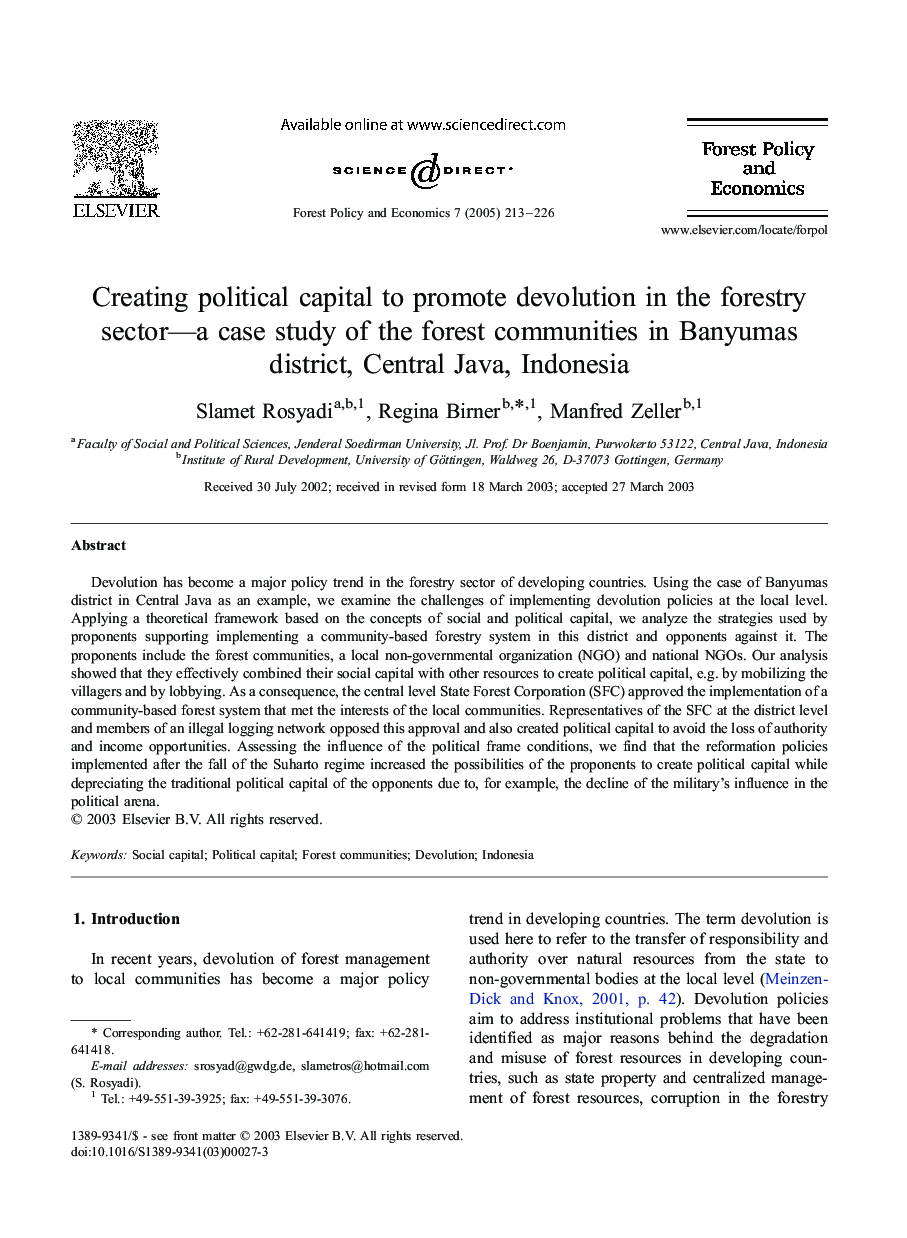| Article ID | Journal | Published Year | Pages | File Type |
|---|---|---|---|---|
| 10251126 | Forest Policy and Economics | 2005 | 14 Pages |
Abstract
Devolution has become a major policy trend in the forestry sector of developing countries. Using the case of Banyumas district in Central Java as an example, we examine the challenges of implementing devolution policies at the local level. Applying a theoretical framework based on the concepts of social and political capital, we analyze the strategies used by proponents supporting implementing a community-based forestry system in this district and opponents against it. The proponents include the forest communities, a local non-governmental organization (NGO) and national NGOs. Our analysis showed that they effectively combined their social capital with other resources to create political capital, e.g. by mobilizing the villagers and by lobbying. As a consequence, the central level State Forest Corporation (SFC) approved the implementation of a community-based forest system that met the interests of the local communities. Representatives of the SFC at the district level and members of an illegal logging network opposed this approval and also created political capital to avoid the loss of authority and income opportunities. Assessing the influence of the political frame conditions, we find that the reformation policies implemented after the fall of the Suharto regime increased the possibilities of the proponents to create political capital while depreciating the traditional political capital of the opponents due to, for example, the decline of the military's influence in the political arena.
Related Topics
Life Sciences
Agricultural and Biological Sciences
Forestry
Authors
Slamet Rosyadi, Regina Birner, Manfred Zeller,
